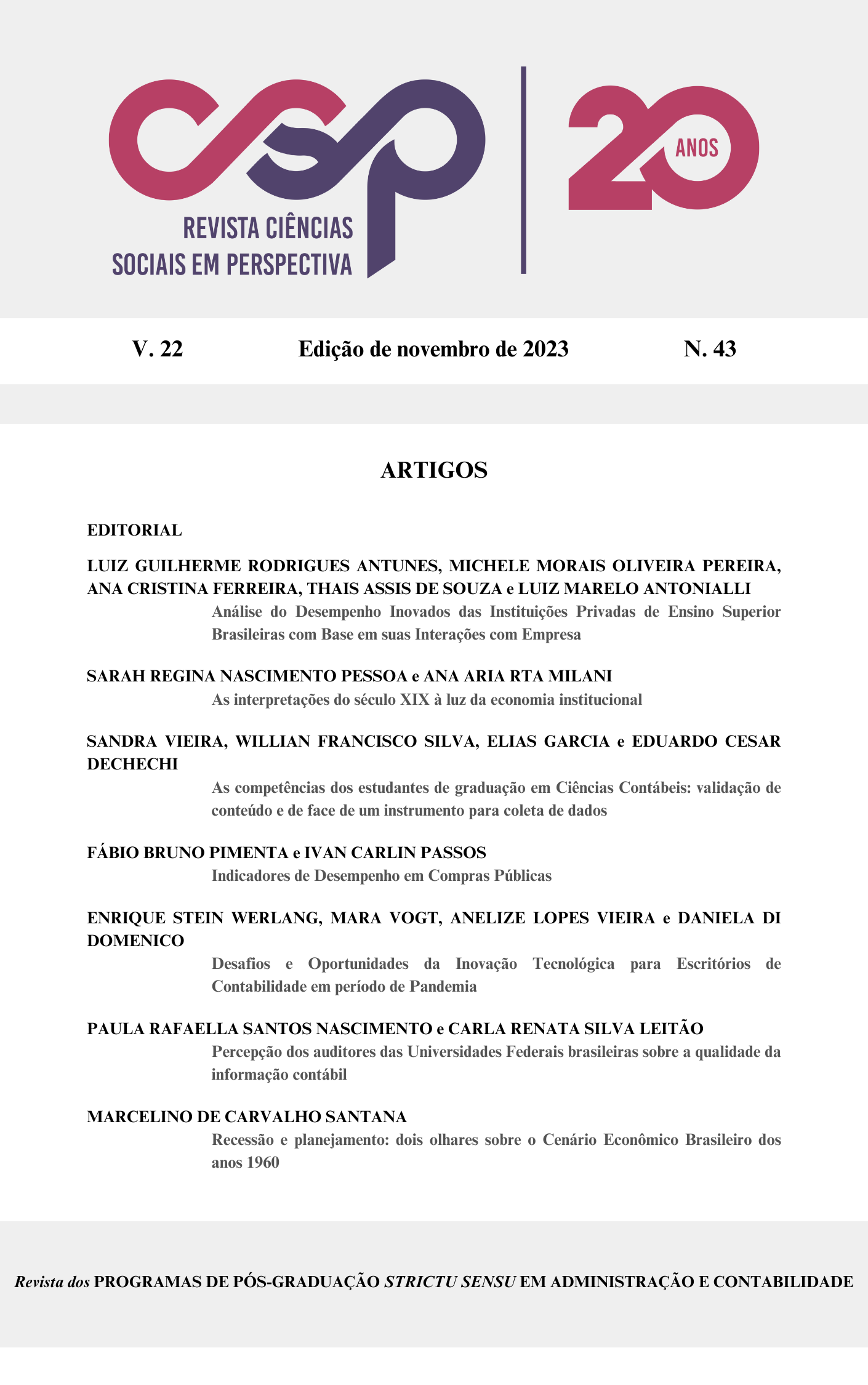Nineteenth-century Brazil's Interpretations in the Light of institutional economics
DOI:
https://doi.org/10.48075/revistacsp.v22i43.31011Abstract
This work aims to make a comparison considering the institutional framework of the 19th-century interpretations of Roberto Simonsen, Caio Prado Júnior, and Celso Furtado. The contributions of Geoffrey Hodgson and Ha-Joo Chang are used to discuss the concept of institutions and the process of institutional change. This study aims to contribute to the area of the history of economic thought, through the systematization of the interpretations of Brazil, qualifying their opinions and criticisms. The merit of this article is the combination of such literature. It is not an innovative work in the contemplation of the facts but in its interpretation. It was observed that the three interpreters distance themselves from a fatalistic bias, present historical examples of what Chang and Evans (2000) call “the constitutive role of institutions” and also demonstrate that the evolutionary process is path dependence.
Downloads
Downloads
Published
How to Cite
Issue
Section
License

This work is licensed under a Creative Commons Attribution-NonCommercial-ShareAlike 4.0 International License.
Aviso de Direito Autoral Creative Commons
Política para Periódicos de Acesso Livre
Autores que publicam nesta revista concordam com os seguintes termos:
1. Autores mantém os direitos autorais e concedem à revista o direito de primeira publicação, com o trabalho simultaneamente licenciado sob a Licença Creative Commons Attribution que permite o compartilhamento do trabalho com reconhecimento da autoria e publicação inicial nesta revista.2. Autores têm autorização para assumir contratos adicionais separadamente, para distribuição não-exclusiva da versão do trabalho publicada nesta revista (ex.: publicar em repositório institucional ou como capítulo de livro), com reconhecimento de autoria e publicação inicial nesta revista.
3. Autores têm permissão e são estimulados a publicar e distribuir seu trabalho online (ex.: em repositórios institucionais ou na sua página pessoal) a qualquer ponto antes ou durante o processo editorial, já que isso pode gerar alterações produtivas, bem como aumentar o impacto e a citação do trabalho publicado (Veja O Efeito do Acesso Livre).
Licença Creative Commons
Esta obra está licenciada com uma Licença Creative Commons Atribuição-NãoComercial-CompartilhaIgual 4.0 Internacional, o que permite compartilhar, copiar, distribuir, exibir, reproduzir, a totalidade ou partes desde que não tenha objetivo comercial e sejam citados os autores e a fonte.





